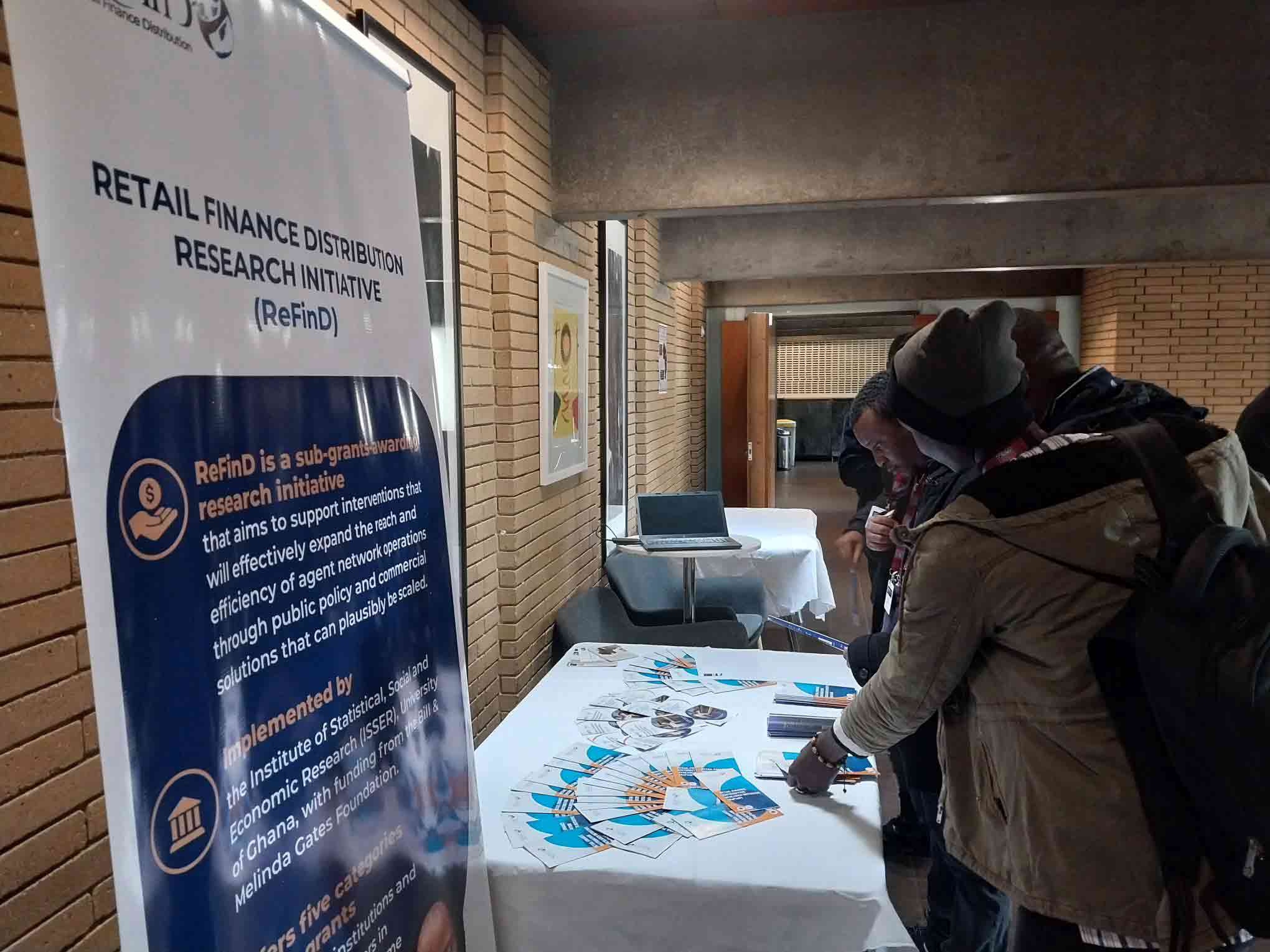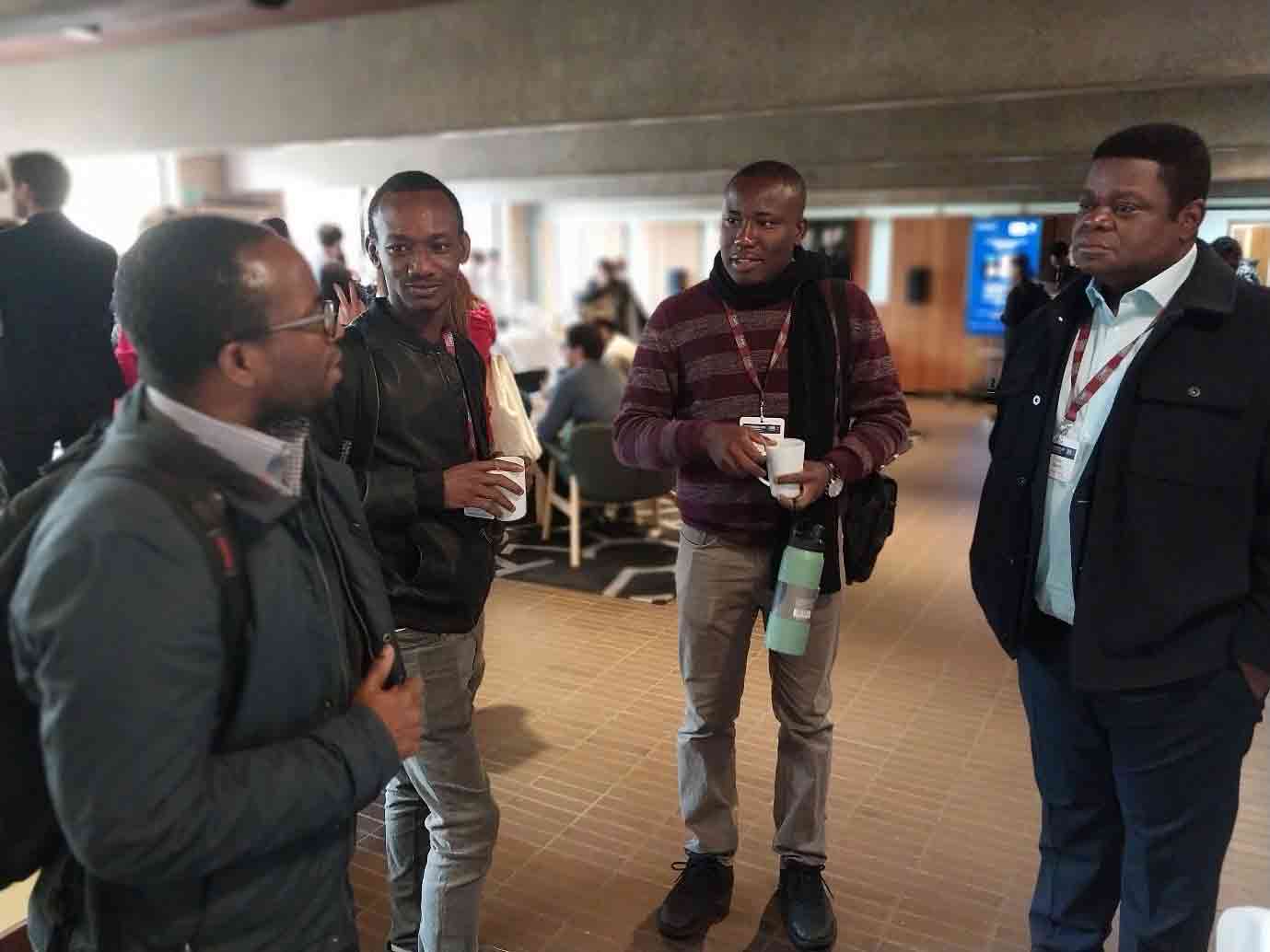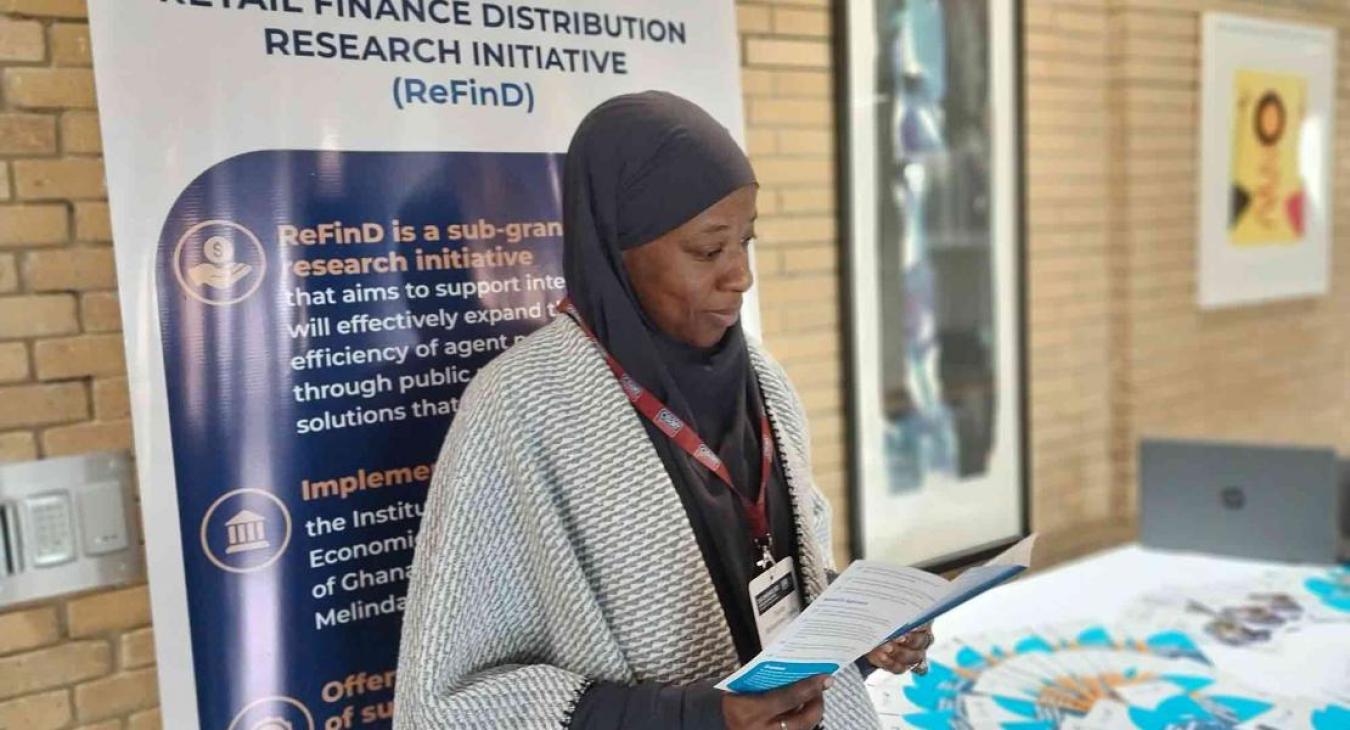Dr. Farida Mohammed Shebu, Bayero University, Kano, Nigeria, with a research focus on improving financial inclusion for Muslim women spends time at the ReFinD stand.
Members of ReFinD have attended CSAE 2023, a three-day international conference held at Oxford University, United Kingdom, organised by the Center for the Study of African Economies (CSAE). As official exhibitors, the team showcased ReFinD to hundreds of conference participants and engaged in activities aimed at promoting and deepening the visibility of the research initiative.
Executive Director, Prof. Peter Quartey said, “Featuring over 300 participants from around the globe, the event was a big boost to the ongoing campaign to deepen awareness and visibility of ReFinD.”
“Coinciding with the second ReFinD request for proposals, the conference also provided a timely opportunity for interested researchers to engage with the research initiative and obtain first-hand information about the application process.”
Ms. Vicentia Quartey, Communications Manager, sharing her experiences from the ReFinD stand said her interactions with visitors were productive, with many expressing appreciation for the engagement opportunity.

ReFinD is a sub-grants-awarding research initiative that aims to support interventions that will effectively expand the reach and efficiency of agent network operations through public policy and commercial solutions that can plausibly be scaled. To access the ReFinD brochure, please click here.



